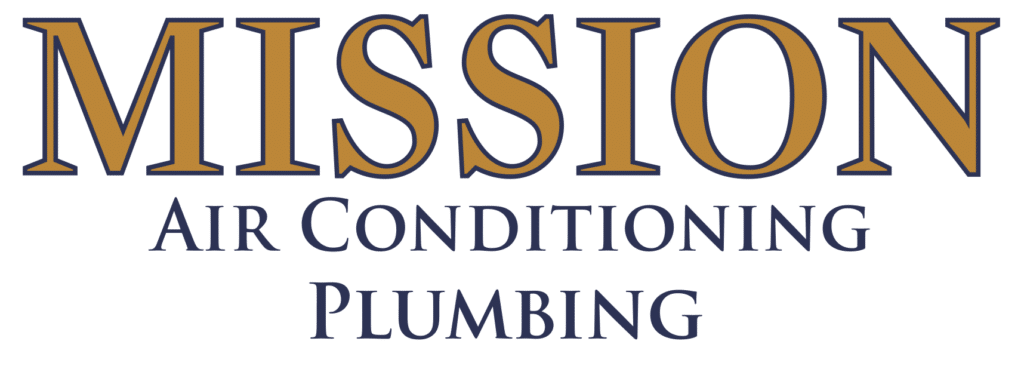Water leaks happen to everyone and can cause a variety of problems, notably an increase in your water bill. The process to repair leaks is fairly simple if you have the right tools and some understanding of your plumbing. Here, we’ll continue our series on DIY plumbing as it pertains to fixing a leaking sink drain. You may not be one of Mission AC & Plumbing’s expert plumbers, but we’ll show you the basics of plumbing repair to give you the confidence you’ll need to stop your sink-leaking woes.
What Causes Water Leaks?
A leaking plumbing system can be costly, especially if not repaired correctly. A leaky kitchen sink, for example, can damage all the items stored under the sink as well as the drywall and cabinetry. Should this happen, you’ll also have the hassle and cost associated with mold, which is also a serious health hazard. There are a few common causes for water leaks in your drain line — some of which are simple fixes that you can manage on your own.
Loose Nuts/Screws
Sometimes plumbing issues are as simple as a compression nut or a screw being loose. In these cases, you can easily grab a pair of pliers or a screwdriver and tighten up whatever nut or screw is loose. These repairs are quick, and (best of all) you don’t have to call out a plumber and pay their fees.
Broken Seals
There are water seals around all the water connectors in your home. They are small, typically black circular pieces that are designed to ensure smooth flow of water between pipes. Like any other home hardware, seals may wear and break down with age and cause leaks. If your sink drain is leaking at the point of contact where the pipe and the sink meet, the cause is likely a damaged water seal.
To repair a broken seal:
- Turn off the water supply.
- Use a basket strainer wrench to disconnect the pipe under the sink.
- Pull off the old seal and wipe away any old plumber’s putty still present.
- Reapply plumber’s putty and put the new seal in place.
- Finally, reconnect the pipe using the basket strainer wrench.
Clogs
We’ve all experienced a clogged drain, from hair in the shower to excess toilet paper in the toilet. A clogged drain in the kitchen can fill the sink with backup water full of food, which is not only inconvenient but quite unsightly. A drain cleaning product can usually solve the issue of a slowly draining sink, but don’t use harsh chemicals often to avoid pipe corrosion. Some clogged drains under a lot of pressure can cause a pipe to overflow or burst. If a pipe has burst, it’s best to call a professional to address your plumbing leak repair needs.
Since a pipe burst caused by a clogged drain is more expensive to fix, proactive prevention is key. To prevent clogged drains, practice routine maintenance, like pouring hot water down the sink for drain cleaning once a week or using an organic cleaner.
Corrosion
Metal pipes are often susceptible to corrosion and rusting. This can cause holes or cracks to form in your drainage system that may leak. If you notice discoloration or unnatural bending and warping around the source of a water leak, corrosion and rust are the most likely causes. If this is the case, it is best to replace your pipes. Pipes are available for purchase at hardware stores and are simple to replace if you have experience with plumbing tools. In a pinch, you can temporarily seal the leak to prevent further damage.
Excessive Water Pressure
High water pressure seems like a good thing, but excessive or uneven pressure can strain your pipes. Pipes and faucets are typically designed in accordance with the maximum level of water pressure they are able to withstand. Any extra pressure could cause damage and leaks.
Excessive water pressure typically means there is a more complex problem within your plumbing or sewer line that requires attention from someone with experience. However, as is usually the case, you can plug the hole temporarily with a sealant or plumber’s tape until professional help arrives. Pressure above 80 PSI is required to be reduced by code through the installation of a PRU (pressure reducing valve).
Rapid Temperature Changes and Hard Freezes
Extreme temperatures can cause pipes to expand and contract, sometimes cracking. There are a few preventative measures you can take to protect your pipes from freezing.
If you live in an area prone to hard freezing, it is best to invest in pipe insulation. This will be the best for long term prevention. In areas like Houston, TX, that are normally rather hot but do occasionally get hit with hard freezes, there are some short term actions you can take:
- Keep your garage doors closed, especially if there are water supply lines in the garage.
- Open kitchen and bathroom cabinet doors. This allows warm air to circulate around the pipes.
- Keep cold water dripping through the faucet that’s connected to outdoor pipes. Running water through a pipe — even a small amount — helps keep it from freezing.
- Keep the thermostat set to the same temperature during day and night. During a hard freeze, any rapid temperature change inside the house will only exacerbate the issues caused by freezing
Other causes
If you can’t immediately diagnose the cause of a leak, it’s best to call a professional who can use plumbing leak detection equipment and other tools to get to the source of the issue and solve it. Other times to start searching for a “plumber near me” online include any major installations or any jobs that pose a safety hazard, such as working with electricity, gas or the major moving parts of a garbage disposal.
Mission AC & Plumbing is one of the highest-rated plumbing companies in Houston. We pride ourselves on excellent customer service and a wealth of experience and knowledge in plumbing.
Contact us today to begin a service request.



